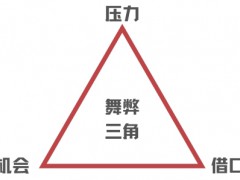据油气新闻网9月27日报道,壳牌航空部门负责人表示,预计在未来一到两年内,全球航空燃料需求将完全恢复到疫情前每年3亿吨的水平。
壳牌航空总裁Jan Toschka在第38届亚太石油会议(APPEC)间隙告诉路透社,美国的需求已经回到2019年的水平,而欧洲的消费已经恢复到80%以上,并有望在明年全面复苏。
他表示,亚洲市场的发展道路比较坎坷,市场有开放也有关闭,但我们预计尤其是亚洲市场明年会复苏,但我们可能还需要一年时间才能看到市场的全部潜力。
Toschka称,市场需要从更远的炼油厂购买……随着这种新的贸易路线的出现,航运、铁路和各种分销都面临着更大的压力。
可持续航空燃料
Toschka表示,壳牌正在考虑在美国再建两家可持续航空燃料(SAF)工厂,其目标是到2030年可再生燃料占其全球航空燃料销量的10%。
其中一个项目将使用传统的加氢酯和脂肪酸(HEFA)技术,而壳牌希望在第二个项目中利用更新的技术。
他称,生产基于HEFA的产品存在限制……我们需要研究纤维素材料,酒精喷气,限制较少的原料。壳牌公司还可能在2022年底或2023年初对其新加坡SAF工厂作出最终投资决定,预计该工厂将于2026年投产,届时该国将生产多达50万吨SAF。与此同时,其鹿特丹生物燃料工厂预计将于2024年或2025年投产。并补充道,到2030年,我们每年将拥有超过200万吨的SAF。随着航空公司和科技公司、会计师事务所和银行等其他行业努力减少碳足迹,SAF正在逐渐增长,但在整个航空燃料市场中仍占相对较小的比例。
占全球碳排放量的3%的航空,是最难实现脱碳的交通形式之一。
Toschka表示,要到2050年实现净零目标,该行业将不得不每年花费500亿美元并建造5000座SAF工厂。
郝芬 译自 油气新闻网
原文如下:
Shell sees global aviation fuel demand return to pre-pandemic levels
Global aviation fuel demand is expected to fully recover to pre-pandemic levels of 300 million tonnes per year in the next one to two years, the head of aviation at Shell said.
Demand in the United States is back at 2019 levels while Europe's consumption has recovered to more than 80 per cent and is on track for full recovery in the next year, Shell Aviation President Jan Toschka told Reuters on the sidelines of the 38th Asia Pacific Petroleum Conference (APPEC).
"Asia has been a bit more of a bumpy road with markets opening up and closing down but mostly we expect Asia in particular, in the next year, to come back, but it might take another year before we see the full potential of the market," he said.
"The market needs to buy from refineries further away ... shipping and rail and all kinds of distribution are under more stress now with this new kind of routing (of trade)," Toschka said.
SUSTAINABLE AVIATION FUEL
Shell is considering building two more sustainable aviation fuel (SAF) plants in the United States, as it aims for renewable fuel to account for 10 per cent of its global jet sales by 2030, Toschka said.
One of the projects would utilise the traditional hydroprocessed esters and fatty acids (HEFA) technology while Shell hopes to tap on newer technology for the second.
"There are limits to producing products based on HEFA ... we need to look into cellulosic material, alcohol to jet, less restricted feedstocks," he said.
Shell may also make a final investment decision for its Singapore SAF plant by end 2022 or early 2023, which is expected to come on stream in 2026 with up to half a million tonnes of SAF produced in the city state, he said.
Meanwhile, its Rotterdam biofuels plant is expected to start production in 2024 or 2025, Toschka said.
"We will be having more than 2 million tonnes of SAF annually by 2030," he added.
SAF from airlines and other sectors such as tech companies, accounting firms and banks, is gradually growing as companies strive to reduce their carbon footprint, but it's still at a relatively small percentage of the total aviation fuel market, he added.
Aviation, accounting for 3 per cent of the world's carbon emissions, is one of the most difficult forms of transportation to decarbonise.
To meet net zero goals by 2050, the industry would have to spend $50 billion a year and build 5,000 SAF plants, Toschka said.
免责声明:本网转载自其它媒体的文章及图片,目的在于弘扬石化精神,传递更多石化信息,宣传国家石化产业政策,展示国家石化产业形象,参与国际石化产业舆论竞争,提高国际石化产业话语权,并不代表本网赞同其观点和对其真实性负责,在此我们谨向原作者和原媒体致以崇高敬意。如果您认为本站文章及图片侵犯了您的版权,请与我们联系,我们将第一时间删除。







